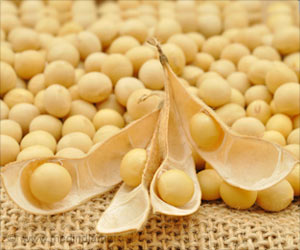The Delhi smog has increased the rate of respiratory disorders. Foods rich in antioxidants like cranberries and lemon can help build immunity and fight infections.
Highlights
- People living in New Delhi are at greater risk of developing various respiratory problems
- Five highly efficient foods like cranberries, lemon, walnuts, jaggery, and water can help survive the deadly Delhi smog
1. Cranberries are highly nutritious and contain Vitamins C, E, and A. During winter; people are deprived of sunlight, an extremely rich source of Vitamin C. However, cranberries provide essential Vitamin C and can treat the deficiency.
Various skin problems are caused by the smog, and U.S. Cranberries have high concentrations of antioxidants & nutrients, which aid in building up the individual’s immunity and can various fight infections. For example, add cranberries to the fruit smoothie or oatmeal or can be eaten in a dried form like other nuts.
2. Lemon is packed with beneficial properties, i.e., right from cleansing to improving digestion. However, during the pollution phase, lemon keeps the individual hydrated. Therefore, drinking lemon water is essential to maintain sufficient hydration within the body.
The Delhi smog creates a lot of problems that are related to the throat, which can be cleared by adding few drops of lime to the tea. Like cranberries, lemon also is a potent agent that can fight skin problems including skin cancer.
Walnut is also known to be an effective mood booster. So, no matter how the smog makes you feel low, having a walnut or two can brighten your day.
5. Jaggery is locally known as gur and is highly packed with iron, which can increase the hemoglobin content and supply of oxygen in the blood. This can protect the individuals from the acute effects of the pollution.
What is Air Pollution?
Air pollution refers to the presence of solid particles and gases in the air. Pollutants may be natural or humanmade. These pollutants cause discomfort, disease, or death to humans. Other living organisms are also affected. The atmosphere is a dynamic complex mixture of gases that is vital for sustaining life on Earth. Emissions from vehicles, factories, dust, pollen and mold spores may be suspended as particles.
Some air pollutants are poisonous; inhalation of polluted air causes respiratory diseases such as asthma, heart diseases, changes in lung function, and also death.
Long-term exposure to polluted air can compromise the growth (especially lung development) in children.
Air pollution is not restricted to the external environment: indoor pollution is also hazardous to health.
Smog
"Smog" is a portmanteau of smoke and fog. Photochemical smog is the result of chemical reaction of sunlight, nitrogen oxides, and volatile organic compounds in the atmosphere. Smog is a serious threat to human health and is regarded as a problem of modern industrialization.
Reference
-
Air Pollution: Everything You Need to Know
- (https://www.nrdc.org/stories/air-pollution-everything-you-need-know
)
Source-Medindia













